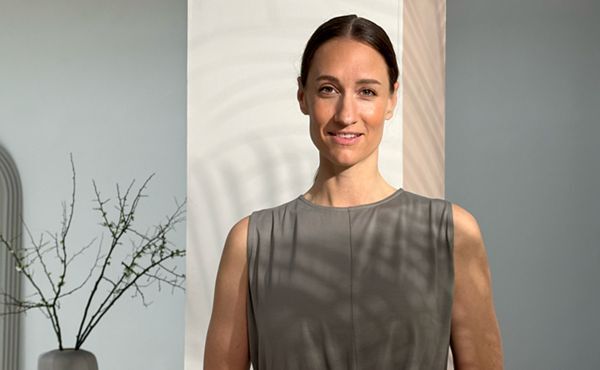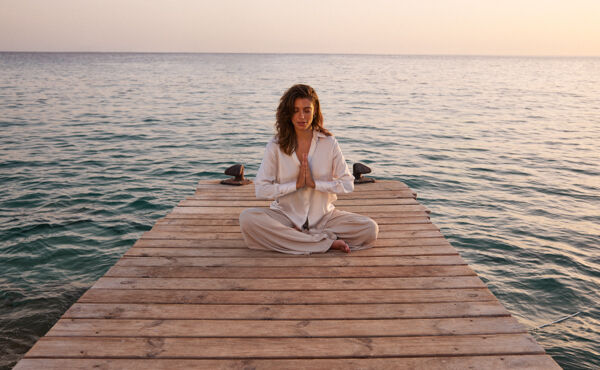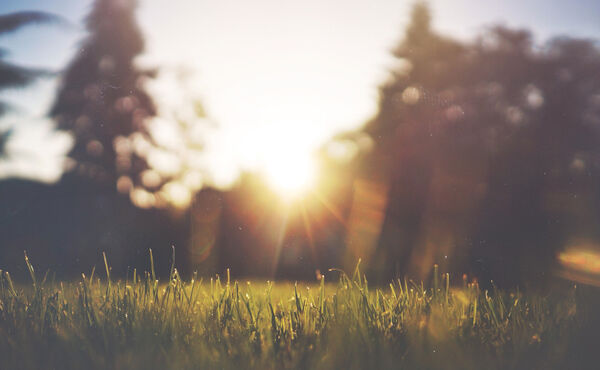Summer is a time when many of our natural routines and habits fall away. If we have children, they are on holiday from school. If we work in an office, we find ourselves getting extra squirmy on beautiful, sunny days. A vacation somewhere by the sea seems to creep into our imagination on a daily (if not hourly) basis.
Rather than fight the natural rhythms that appear during this time of the year, we can work with them to foster a deeper sense of connection to ourselves and the world around us. We are instinctual beings, and different times of the year bring different energies, attributes and themes into our lives.
If we pay close attention to what is already in the “air” during each season, we can create practices that work in harmony with nature and her cycles. I’d like to focus on what I see as the major theme, which naturally arises in summer—light—and suggest some ways to develop new awareness and routines around it.
Rest is not idleness, and to lie sometimes on the grass under trees on a summer's day, listening to the murmur of the water, or watching the clouds float across the sky, is by no means a waste of time.
Obviously, summer is the time of year when there is literally the most light. The days are longer, with shorter periods of darkness. We may find ourselves staying up later at night or waking up a bit earlier in the morning.
But light also has a lot of significance to us, metaphorically.
1. Physically
This is the time of year when the body naturally craves “light” foods—juicy fruits and salads, foods that help us stay cool, calm and hydrated. We should be searching for refreshing and cooling recipes during this time of the year.
According to Ayurvedic expert John Douillard, “when we adjust our diet and lifestyle to match the season, health-promoting digestive microbes dramatically change.” In summer, he recommends focusing on foods that are sweet, bitter and astringent such as salads, steamed vegetables, fruit and coconut oil. We should be avoiding selections that are pungent, hot and sour such as coffee and spicy foods. Sipping regularly on coconut water or water infused with cucumber will help to keep you hydrated.
A recommended routine: Think of your body as a sensitive and powerful vessel—one that is naturally affected by Nature and the seasons of the year. Before you make a meal, order at a restaurant or select groceries, take a moment (maybe even close your eyes) and tune in to how your body is feeling and what it truly needs. Select foods, mindfully—always paying close attention to how you feel when eating them and shortly after. If you feel overheated or irritable after eating, adjust your selections to more cooling and refreshing foods.
2. Energetically
Light brings one of our strongest sources of “prana” or vital energy—the sun. But we need to know how to harness this energy for our benefit, rather than over-energising or over-heating ourselves through too much sun exposure. If we engage in excessive activity during the mid-day heat, it can be energetically draining for us. Rather, focus on absorbing solar prana during the morning or evening hours, when the sun is less bright.
A recommended routine: Once a week, in the early morning or late evening, sit outside alone in the sun. Close your eyes and keep your hands open on your lap. Inhale and exhale slowly and comfortably in a steady rhythm. Focus, for five minutes, on absorbing the prana or energy from the sun. Let it spread through your whole body bringing you vitality and life-force. Be cautious not to do this too often or for too long as it can over-energise your system.
3. Psychologically
Summer is a time for extroversion. Winter turns our gaze naturally in, whereas summer takes our gaze naturally out. As a depth psychologist, I usually encourage people not to focus too much on doing “heavy” internal work (or going too much into their personal “darkness”) during this time of the year.
Rather, what we find psychologically healing in summer is “light”-er activity—rest and relaxation—focusing on humor, relationships, social gatherings and the “light”er aspects of our life and personality. Try to distance yourself from screens or any activity that keeps you inside. Focus, instead, on getting out—out of your house, out of your head, out of your comfort-zone—and connect with the natural world. Allow a sense of psychological restoration through play, travel and rest.
A recommended routine: Try and consciously plan a digital detox. This means no phones, computers, TV, nada. For a full 24 hours, minimum, perhaps even longer if your incessant-iPhone-reaching instinct can stand it! According to various studies, spending hours on a screen creates mental fatigue and physical lethargy, among other problems. I recently read an article by a mother who created a tradition for her family every year of “screen-free summers.” She wrote, beautifully and powerfully, about how this completely transformed the psychological health, engagement, and imagination not only of her children, but the whole family.
Perhaps this is something you can get curious about and try out for yourself. Let people around you know about the adjustment you are making, and stick to it. Maybe even have someone hold you accountable. When we seek the lightness of summer we naturally move out, more fully, into the world and relationships around us.






